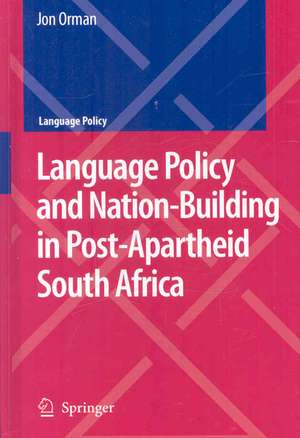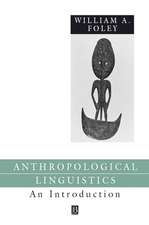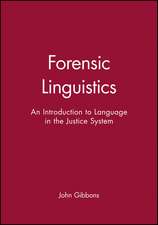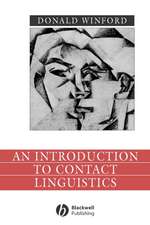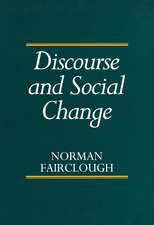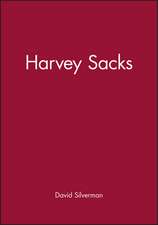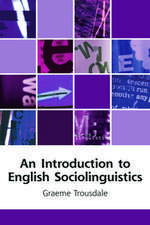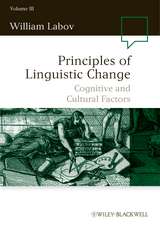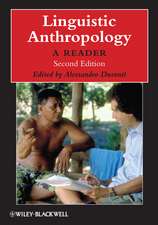Language Policy and Nation-Building in Post-Apartheid South Africa: Language Policy, cartea 10
Autor Jon Ormanen Limba Engleză Hardback – 27 sep 2008
| Toate formatele și edițiile | Preț | Express |
|---|---|---|
| Paperback (1) | 777.35 lei 6-8 săpt. | |
| SPRINGER NETHERLANDS – 11 noi 2010 | 777.35 lei 6-8 săpt. | |
| Hardback (1) | 642.68 lei 6-8 săpt. | |
| SPRINGER NETHERLANDS – 27 sep 2008 | 642.68 lei 6-8 săpt. |
Din seria Language Policy
- 24%
 Preț: 804.41 lei
Preț: 804.41 lei - 18%
 Preț: 885.63 lei
Preț: 885.63 lei - 18%
 Preț: 1009.08 lei
Preț: 1009.08 lei - 24%
 Preț: 776.31 lei
Preț: 776.31 lei - 18%
 Preț: 775.30 lei
Preț: 775.30 lei - 15%
 Preț: 641.71 lei
Preț: 641.71 lei - 15%
 Preț: 634.32 lei
Preț: 634.32 lei - 18%
 Preț: 740.25 lei
Preț: 740.25 lei - 15%
 Preț: 643.16 lei
Preț: 643.16 lei - 18%
 Preț: 1118.75 lei
Preț: 1118.75 lei - 24%
 Preț: 753.11 lei
Preț: 753.11 lei - 15%
 Preț: 647.40 lei
Preț: 647.40 lei - 18%
 Preț: 785.42 lei
Preț: 785.42 lei - 18%
 Preț: 949.23 lei
Preț: 949.23 lei - 18%
 Preț: 895.58 lei
Preț: 895.58 lei - 15%
 Preț: 645.47 lei
Preț: 645.47 lei - 24%
 Preț: 689.39 lei
Preț: 689.39 lei - 15%
 Preț: 642.83 lei
Preț: 642.83 lei - 15%
 Preț: 648.89 lei
Preț: 648.89 lei - 15%
 Preț: 635.80 lei
Preț: 635.80 lei - 15%
 Preț: 634.32 lei
Preț: 634.32 lei -
 Preț: 389.70 lei
Preț: 389.70 lei - 18%
 Preț: 1106.79 lei
Preț: 1106.79 lei - 24%
 Preț: 787.79 lei
Preț: 787.79 lei - 18%
 Preț: 1111.97 lei
Preț: 1111.97 lei - 24%
 Preț: 738.97 lei
Preț: 738.97 lei - 15%
 Preț: 700.29 lei
Preț: 700.29 lei - 18%
 Preț: 895.27 lei
Preț: 895.27 lei - 18%
 Preț: 889.60 lei
Preț: 889.60 lei - 18%
 Preț: 953.97 lei
Preț: 953.97 lei
Preț: 642.68 lei
Preț vechi: 756.09 lei
-15% Nou
Puncte Express: 964
Preț estimativ în valută:
122.99€ • 127.93$ • 101.54£
122.99€ • 127.93$ • 101.54£
Carte tipărită la comandă
Livrare economică 14-28 aprilie
Preluare comenzi: 021 569.72.76
Specificații
ISBN-13: 9781402088902
ISBN-10: 1402088906
Pagini: 216
Ilustrații: XII, 202 p.
Dimensiuni: 156 x 235 x 18 mm
Greutate: 0.48 kg
Ediția:2008
Editura: SPRINGER NETHERLANDS
Colecția Springer
Seria Language Policy
Locul publicării:Dordrecht, Netherlands
ISBN-10: 1402088906
Pagini: 216
Ilustrații: XII, 202 p.
Dimensiuni: 156 x 235 x 18 mm
Greutate: 0.48 kg
Ediția:2008
Editura: SPRINGER NETHERLANDS
Colecția Springer
Seria Language Policy
Locul publicării:Dordrecht, Netherlands
Public țintă
Professional/practitionerCuprins
Key Concepts in the Study of Ethnic and National Identities.- Language Policy, Language Planning and National Identity: Theoretical Perspectives.- Language Policy and Identity Planning in South Africa: A Historical Overview.- Language Policy, Identity Conflict and Nation-Building: The Case of Afrikaans.- Towards an Alternative, Inclusive Approach to Language Policy and~National Integration for Post-Apartheid South Africa.- Conclusion.
Recenzii
From the reviews:
"Orman’s book constitutes an important contribution to the field. It both raises questions of concern to anyone interested in language planning and language policy studies, and provides an outstanding overview of the complex and paradoxical South African situation." (Timothy Reagan, Language Problems & Language Planning, 33:3,2009)
“This volume is part of a series aimed at scholars … as well as educational and applied linguistics and sociolinguistics. … provides an overview of the relationship between national identity and language, illustrating how this has manifested itself in the new South Africa. … It will be of interest especially to those involved in language planning and policy, but also those interested in the interplay of identity and language in multilingual societies, and finally to anyone interested in the linguistic future of this country.” (Kirsten Colquhoun, Linguist List, December, 2009)
"Orman’s book constitutes an important contribution to the field. It both raises questions of concern to anyone interested in language planning and language policy studies, and provides an outstanding overview of the complex and paradoxical South African situation." (Timothy Reagan, Language Problems & Language Planning, 33:3,2009)
“This volume is part of a series aimed at scholars … as well as educational and applied linguistics and sociolinguistics. … provides an overview of the relationship between national identity and language, illustrating how this has manifested itself in the new South Africa. … It will be of interest especially to those involved in language planning and policy, but also those interested in the interplay of identity and language in multilingual societies, and finally to anyone interested in the linguistic future of this country.” (Kirsten Colquhoun, Linguist List, December, 2009)
Textul de pe ultima copertă
The urgent need to forge an inclusive, multi-racial, multicultural South African national identity has been one of the most dominant themes in post-Apartheid politics and society. With the realisation that many of the social problems which beset contemporary South African society are sociolinguistic in origin, the critical importance of language policy and planning for democratic ‘nation-building’ becomes evident. This book adopts a rigorous theoretical approach to the study of language policy and national identity, both in a general sense and with specific application to the sociolinguistic situation in South Africa. It also includes an entire chapter devoted to the issue of the status and role of Afrikaans in the post-apartheid era. Employing a strictly multi-disciplinary approach, the book draws on insights from a number of academic disciplines including sociolinguistics, the sociology of language, sociology, social psychology, political theory and social anthropology.
The book will be of considerable interest to a wide range of academic theorists and students whose work is either specifically concerned with, or touches upon, issues of language policy and national identity, as well as language planners and policymakers, language pedagogists and educational organisations, both within South Africa and beyond.
The book will be of considerable interest to a wide range of academic theorists and students whose work is either specifically concerned with, or touches upon, issues of language policy and national identity, as well as language planners and policymakers, language pedagogists and educational organisations, both within South Africa and beyond.
Caracteristici
Theoretically rigorous and innovative - pushes forward theoretical understanding of concepts such as national identity and language policy/planning and the way in which they interrelate The first chapters of the book address universal themes and issues in the study of national identities and language policy and planning. This makes the book accessible and interesting for sociolinguists, language policy and ethnicity/nationalism scholars in general, beyond a strictly South African context Interdisciplinary, non-linguicentric, discussion of the South-African situation, including a chapter on the issue of Afrikaans
